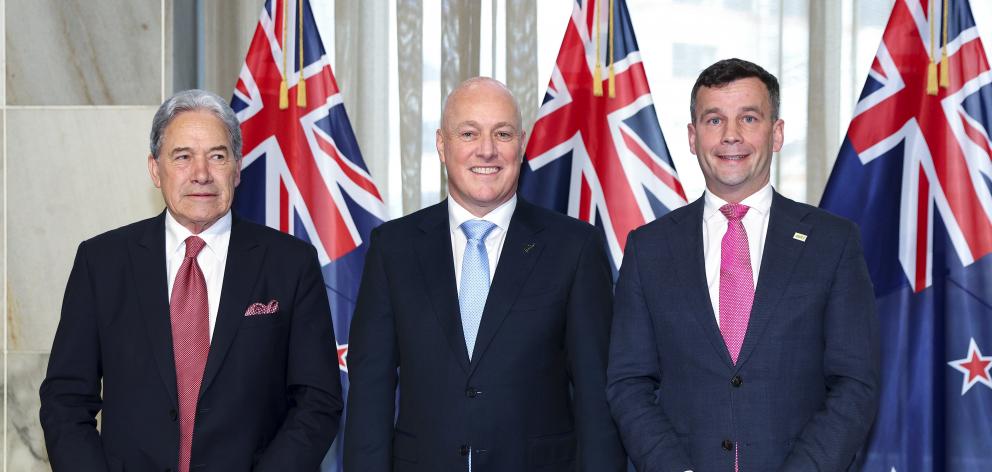
A comment by the Minister of Health reported in the Otago Daily Times (2.8.24) lays bare the real nature of the National-led coalition government.
Defending the decision to continue with a cost-benefit analysis of a third medical school, he cited an obligation under "the National-Act New Zealand coalition agreement".
New Zealand has found itself in a situation few could have imagined before the election. Labour lost what had been an extraordinary majority and National emerged as the strongest party in Parliament, but not strong enough to form a government. Many expected this, and it would be fair to assume that a National-Act coalition was anticipated by many.
But the coalition that finally emerged did not reflect the election result so much as the outcome of hard-nosed negotiations between National’s inexperienced leader and the determined leaders of two minority parties, that had each received less than 10% of the electoral vote.
The result, of course, is constitutionally valid. The coalition members are all elected MPs and acting together they can, for the present, muster a majority in Parliament.
But the coalition is hardly what might have been anticipated.
The two sub-10% parties appear to have equal standing with the majority partner and in an initial policy vacuum they were able to secure coalition support for policies endorsed by less than 10% of voters.
In some cases, keynote policies of minor parties were sub-contracted to associate ministers who could introduce their minority issues seemingly without implicating senior ministers.
Think health/smoking, education/charter schools, and Act on several Maori issues.
In this bipolar coalition the prime minister holds office by favour of the other leaders, either of whom could collapse the government, a situation that enhances their ongoing bargaining power.
This is where the Act policy of reviewing the principles of the Treaty of Waitangi stands. The Act leader secured an undertaking in the negotiations for National to support the introduction of a Bill for consultation on this question, with the prime minister adamant that National was not prepared to support it beyond its introduction in the House.
In the to-and-fro of the coalition’s first 100 days the Act leader stated his expectation that when it came to the point, the Bill would be supported, with the prime minster adamant that this would not be so.
This same party has sought to limit councils’ right to maintain wards to ensure that significant and potentially underrepresented communities have a voice in council deliberations. To claim that Maori wards represent an undemocratic special privilege in a way that, for example, rural wards do not, seems an attempt to constrain local government’s right to determine what is appropriate in their particular situations.
In its context the Treaty principles issue is much more than a question of who blinks first. The formation of this particular kind of coalition is a reminder of how meagre our constitutional safeguards really are.
Those promoting a review of the Treaty’s "principles" now are the lineal descendants of those who manipulated Westminster processes to bypass Treaty provisions in the early colonial era, to over-ride solemn guarantees that stood in the way of a land and asset-hungry settler society.
A strong reaffirmation of the provisions of the Treaty of Waitangi now may be our last defence against a looming corporatisation of modern society by an elite that for decades has been content to leave behind those who could not keep up, or whose goals and values lay elsewhere.
— Simon Rae has taught and written in the areas of religion, state and ideology.











